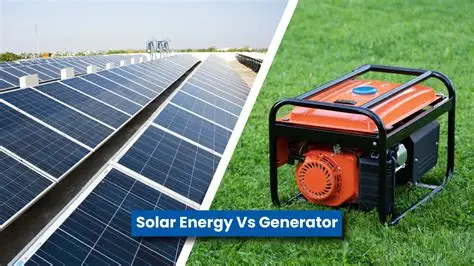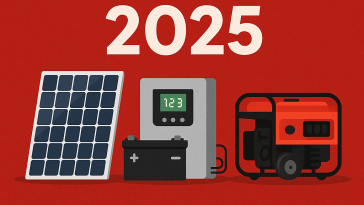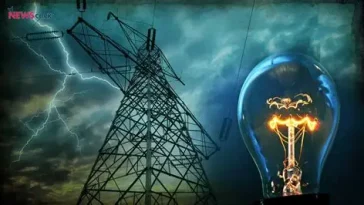In Nigeria, where electricity supply is notoriously unreliable, many people are constantly looking for dependable alternatives to keep the lights on and businesses running. Two of the most popular power solutions are solar power systems and fuel-powered generators. But which is better? What’s more cost-effective, reliable, and future-proof for the average Nigerian home or small business?
This comprehensive guide breaks down the differences between solar and generator technology to help you make a smart, long-term decision tailored to your lifestyle and energy needs.
1. Understanding the Basics
What Is Solar Power?
Solar power systems use solar panels to capture sunlight and convert it into electricity through an inverter. This power can be stored in batteries and used to run your appliances day or night.
What Are Generators?
Generators are machines that burn petrol, diesel, or gas to produce electricity. They come in various sizes, from small portable units to large industrial models.
2. Installation & Setup
Solar Systems
Installing solar power systems requires professional setup, including mounting panels, connecting inverters, and setting up battery banks. Though the initial cost is higher, it is often a one-time investment.
Generators
Generators are easier to set up. You can buy one, fill it with fuel, and start using it immediately. Most homes in Nigeria already use them as backup power.
3. Cost Comparison
Upfront Cost
-
Solar: High initial cost (panels, inverter, battery).
-
Generator: Lower upfront cost depending on size.
Long-Term Cost
-
Solar systems have zero fuel costs and very low maintenance over time.
-
Generators require continuous fuel, oil, servicing, and parts replacement. Over 3–5 years, the cost of running a generator may outweigh the upfront cost of solar.
💡 Keyword: long-term cost of running a generator in Nigeria
4. Fuel Dependency
Generators are completely dependent on fuel. In times of fuel scarcity or rising prices, this can be stressful and expensive.
Solar systems are 100% fuel-independent. Once installed, you rely only on sunlight — a free and renewable energy source.
5. Noise and Pollution
Generators are noisy, often contributing to sound pollution in urban and rural areas alike. They also emit harmful gases like carbon monoxide, which can be dangerous in enclosed spaces.
Solar systems are completely silent and environmentally friendly, making them ideal for both homes and schools, hospitals, or offices.
6. Power Capacity and Scalability
If your energy needs increase, solar systems can be expanded by adding more panels or batteries.
Generators have a fixed capacity. If you need more power, you must buy a bigger unit or an entirely new one.
7. Maintenance & Repairs
-
Generators require frequent oil changes, filter replacements, spark plug servicing, and sometimes major engine work.
-
Solar systems require minimal maintenance — mainly panel cleaning and occasional inverter or battery servicing.
8. Lifespan
-
Solar panels typically last 20–25 years, with some going beyond 30 years with proper care.
-
Generators usually last 5–10 years, depending on usage and maintenance.
Over time, solar clearly provides more value and less hassle.
9. Accessibility & Availability in Nigeria
Thanks to growing awareness and government incentives, solar products in Nigeria are becoming more accessible and affordable. Many reputable suppliers now offer payment plans, installations, and warranty-backed solar kits.
Generators, on the other hand, are available almost everywhere — from roadside shops to hardware stores. They remain a more accessible short-term solution, especially for people with lower initial capital.
10. Suitability for Businesses vs. Homes
For Homes:
Solar is ideal for homes needing a silent, automatic, and low-maintenance solution. You can run lights, fans, TVs, and small fridges without worrying about fuel or noise.
For Small Businesses:
Solar can power POS systems, computers, fans, and basic lighting — perfect for shops, salons, and home-based businesses.
For Large Power Loads:
Heavy machines, deep freezers, or welding tools may still require generators, unless you’re ready to invest in a high-capacity solar system.
11. Government Policies & Support
Nigeria is beginning to support renewable energy through incentives and partnerships. Several NGOs and private companies now offer solar energy loans or lease-to-own packages. Generator subsidies, however, are minimal, and fuel prices continue to rise.
12. Real-Life Examples
-
Ada in Lagos switched to solar for her home and reduced her monthly expenses by 40%.
-
Mr. Musa in Abuja runs his mini supermarket on a solar-inverter system, avoiding fuel costs entirely.
-
Chibuzor in Enugu still relies on a 3.5kVA generator due to his barber shop’s high power needs — but he plans to upgrade to solar as prices drop.
13. Final Verdict: Which One Should You Choose?
| Category | Solar Power | Generator |
|---|---|---|
| Upfront Cost | Higher | Lower |
| Running Cost | Free | Ongoing fuel and maintenance |
| Noise | Silent | Noisy |
| Pollution | Clean | Emits fumes |
| Maintenance | Minimal | Frequent |
| Lifespan | 20+ years | 5–10 years |
| Fuel Dependency | None | 100% fuel dependent |
| Scalability | Easy to upgrade | Fixed capacity |
✅ Choose Solar If: You want clean, quiet, and long-term savings.
⚠️ Choose Generator If: You need power urgently or for heavy machines and have a tight budget.
Conclusion
Solar power and generators both play vital roles in Nigeria’s energy landscape. While generators offer a quick fix, solar is the future of sustainable power for Nigerian homes and businesses.
If you want freedom from fuel costs, a quieter environment, and a long-term solution that adds value to your home, then solar technology is the way forward.
💬 Have questions about wheither generator or solar power ? drp[ thoughts in comment!




 No products in the cart.
No products in the cart.